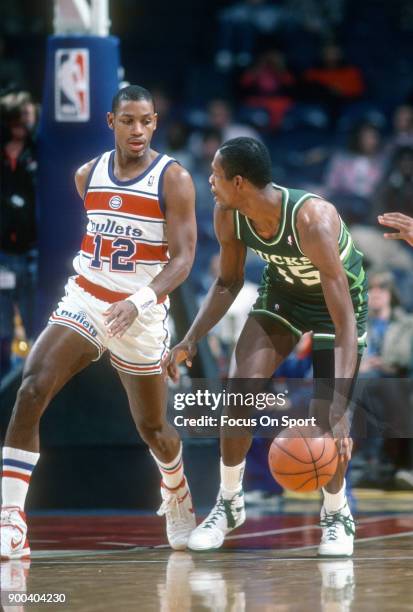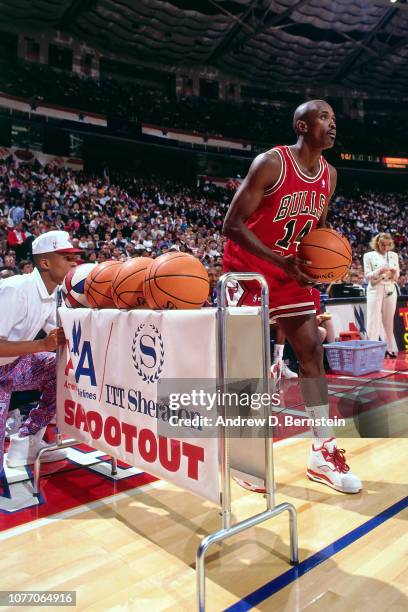Did you know that a sharpshooting NBA champion, a teammate of Michael Jordan, was effectively blackballed from the league for daring to speak truth to power? Craig Hodges' story is a stark reminder of the price of principle and the complexities of navigating a world where athletic prowess often clashes with the courage of one's convictions.
Craig Anthony Hodges, born on June 27, 1960, in Park Forest, Illinois, a town just south of Chicago, was more than just a basketball player; he was a symbol of excellence on the court and a voice for justice off of it. His journey, from the hardwood floors of Rich East High School to the championship stages of the NBA, is a testament to his dedication and skill. Drafted in the third round (48th overall) by the San Diego Clippers in the 1982 NBA Draft, Hodges carved out a successful career, most notably with the Chicago Bulls, where he played alongside the legendary Michael Jordan. He was a vital piece of the Bulls' early dynasty, known for his deadly accuracy from beyond the three-point line, a skill that would have made him a standout even in today's three-point-obsessed NBA. Standing at 6'2 and weighing 190 pounds, Hodges was a shooting guard and point guard who shot right-handed, and his contributions were crucial to the team's success. His career spanned multiple teams, but it was his time in Chicago that truly defined him, where he clinched two NBA championships. However, beyond the accolades and the championships, lay a deeper narrative, one that would ultimately shape the latter years of his career and his legacy.
| Attribute | Details |
|---|---|
| Full Name | Craig Anthony Hodges |
| Date of Birth | June 27, 1960 |
| Place of Birth | Park Forest, Illinois, USA |
| Height | 6'2 (188 cm) |
| Weight | 190 lbs (86 kg) |
| Position | Shooting Guard / Point Guard |
| Shoots | Right |
| High School | Rich East High School, Park Forest, Illinois |
| College | Cal State Long Beach |
| NBA Draft | 1982, San Diego Clippers, 3rd round (48th overall) |
| Career Highlights | Two-time NBA Champion (Chicago Bulls), Three-time NBA Three-Point Contest Champion, Considered one of the best three-point shooters before the emergence of Steph Curry. |
| Activism | Known for speaking out against racism and inequality |
| Reference | Basketball-Reference.com |
Hodges' narrative takes a significant turn when considering his stance outside of basketball. He recognized that with great fame comes great responsibility and used his platform to address issues of racial inequality and social injustice. This often put him at odds with the established norms, particularly when he penned a letter to President George H.W. Bush during a White House visit following the Bulls' first championship. This act, though intended to bring attention to critical social issues, including the need for greater support for the Black community and against racism, proved to be a career-altering decision.
The backlash was swift and severe. Despite his proven skill and track record, Hodges found himself increasingly marginalized in the league. While many of his contemporaries continued their careers, Hodges struggled to find a team willing to take a chance on him. The whispers of being blackballed began to circulate, and the reality of his situation became painfully clear. He was a casualty of his principles, a stark example of the challenges faced by athletes who dare to speak out against the status quo.
His experiences provide valuable insights into the dynamics of sports, politics, and social justice. While his on-court achievements earned him accolades and championships, it was his off-court actions that ultimately defined his career trajectory. Hodges' story reveals a complex relationship between athletic success, personal beliefs, and the potential consequences of challenging the established order.
Hodges was a player who was incredibly talented and could shoot from a great distance. In an era that was not yet fully focused on three-point shooting, his skill was still respected and feared by opponents. He was a three-time NBA Three-Point Contest champion, a testament to his shooting prowess. His accuracy and ability to hit crucial shots made him a valuable asset to any team. However, it was his commitment to speaking out, to using his platform to make a difference, that ultimately eclipsed his on-court achievements in the minds of many. His story highlights a pivotal moment in sports history, underscoring the risks and rewards that come with speaking one's mind.
Beyond his playing career, Hodges coached Kobe Bryant during Bryant's early years. This coaching role underscores his deep understanding of the game, his ability to impart knowledge, and his influence on the next generation of players. It is a testament to his dedication to basketball, his desire to share his expertise, and his unwavering commitment to the sport he loved.
The events surrounding the White House visit, in particular, are central to understanding Hodges' post-playing career. It was there that he sought to bring awareness to the issues facing the Black community. This act, while intended to be a gesture of unity, was perceived by some as a challenge to the established order. The fallout was dramatic, leading to the effective end of his playing career.
Craig Hodges' story is not merely about a basketball player; it's a story about sacrifice, courage, and the enduring power of one's principles. It provides a thought-provoking case study on the complexities of sports, social justice, and the often-unspoken rules that govern professional athletics. His life serves as a reminder that the pursuit of excellence is not always measured solely by the number of championships won or points scored, but also by the choices made, the battles fought, and the legacies left behind. His experiences offer a valuable perspective on the intersection of sports, activism, and the enduring pursuit of justice.



